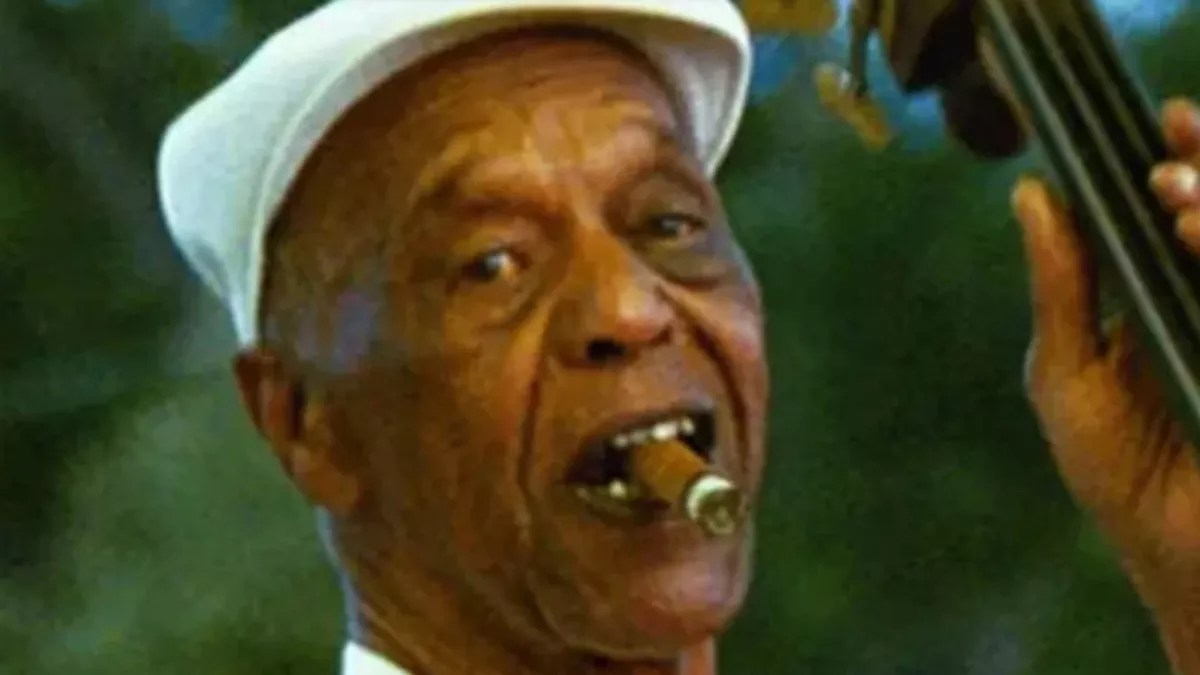
Brett McCutcheon

Audio By Carbonatix
The Colorado Music Hall of Fame biography of Charles Burrell, who died early today, June 17, at 104, dubs him “The Jackie Robinson of Classical Music” because he was the first African American to sign a full-time contract with a major American symphony orchestra. The bassist, who was inducted into The Hall in 2017, became a member of the Denver Symphony Orchestra, precursor to the Colorado Symphony Orchestra, in 1949, two years after Robinson broke the color barrier in Major League Baseball.
But this lofty label only hints at Burrell’s influence on Colorado music. In addition to his status as a classical ceiling-smasher, he is widely viewed as the finest jazz bassist to call the state home – and his generosity of spirit was equal to his immense musical abilities.
During an interview for his own Colorado Music Hall of Fame induction in 2024, Greg Gisbert reflected on the time he’d sat in with Burrell’s group as a talented but inexperienced thirteen-year-old prodigy. The combo was playing the jazz standard “Watch What Happens,” and when Burrell called out “Bridge!,” Gisbert “turned around and said, ‘What’s a bridge?’ And he told me what a bridge was right in the middle of the song. That’s a really fond memory. To see the legacy of Charles Burrell is just incredible. What a loving, gifted soul.”
Among the best articles about Burrell was the 2019 Westword piece in which Jon Solomon chatted with him regarding a tribute concert by the Colorado Symphony. The native of Detroit said that before he was hired, Denver Symphony conductor and music director Saul Caston interrogated him for nearly two hours in an effort to determine if this particular Black man would be able to coexist with an otherwise all-white orchestra before asking him to demonstrate his skills.
The experience was nerve-racking, Burrell admitted: “Being from the ghetto, I realized what he was doing. And I was on my best behavior. I remember that, because when he got down to about an hour and 55 minutes, the culmination of that interview was, ‘Play me a G scale, slow, two octaves up and back.’ It’s wicked, man; it’s the most wicked thing you can do. But I did it. I’d been accustomed to doing that while I was practicing for all those years.”
After joining the DSO, Burrell was subjected to a few uncomfortable moments by colleagues. “I was very cool in my actions and so forth in what I had to do,” he said. But “one fella, who was a drummer, was kidding around. He didn’t know it, but I overheard him say, ‘Well, those people are like that.’ I knew what he was talking about.” After rehearsal, Burrell confronted the drummer, giving his tie a yank and letting him know he was more than capable of standing up for himself – and once the air was cleared, the pair became good friends.
When he wasn’t keeping time for the Denver Symphony, Burrell supported many of jazz’s most brilliant performers as the house bassist at the Rossonian in Five Points from 1949 to 1959. He collaborated with Billie Holiday, Ella Fitzgerald and Sarah Vaughan and instrumentalists Charlie Parker, Gene Harris and Ben Webster among many others.
These gigs weren’t terribly lucrative, and to make ends meet, Burrell worked odd jobs, serving as a janitor at the Denver Municipal Auditorium and putting linseed oil on all 9,000 seats at Red Rocks. “I did a thorough job, if I must say, in doing that!” Burrell wrote about the Red Rocks gig in his 2016 autobiography, The Life of Charlie Burrell. “I mean, I didn’t leave an inch unturned! I always believe whatever you do, do it the best you can, and I did.”
Meanwhile, Burrell continued to break new ground. In the mid-’50s, he played in Colorado’s first integrated band, the Al Rose Trio; pianist Rose was Jewish, drummer Lee Arellano a Latino. And in 1959, he integrated the San Francisco Symphony, where he received the royal treatment and got to challenge himself against masterworks such as Tchaikovsky’s Symphony No. 4. Tackling the latter “made me cry because it was so magnificent to me. It was a touch of beauty. I never thought I’d play that before. When I got to the last movement, I suddenly realized, ‘Hey, this is a real piece of art, but boy, oh boy, it’s tough.’ And that’s why I think I liked it so much.”
Burrell returned to the Denver Symphony Orchestra in the 1960s and remained in the fold until retiring in 1999 just shy of his eightieth birthday. But the honors kept coming. He was a recipient of the Denver Mayor’s Award for Excellence in Arts and Culture and the Martin Luther King Jr. Humanitarian Award, and Congresswoman Diana DeGette saluted him in the U.S. House of Representatives as “a titan of classical and jazz bass.” In addition, Aurora Public Schools named its arts magnet program for him in 2021, the same year that a portrait of him was unveiled in Boettcher Hall.
In the prologue to his autobiography, Burrell stressed that “I can sum up most of what I was doing in life in a very few words. It was a matter of love for the profession and love for the people. And that’s about how simple it was.”
The family has released this statement: “While we are heartbroken at his loss, we are also thankful for his long and inspiring life. Thank you to all who cared about Charles and thank you for all of your prayers. Memorial plans for Charles will be announced in the coming days.”